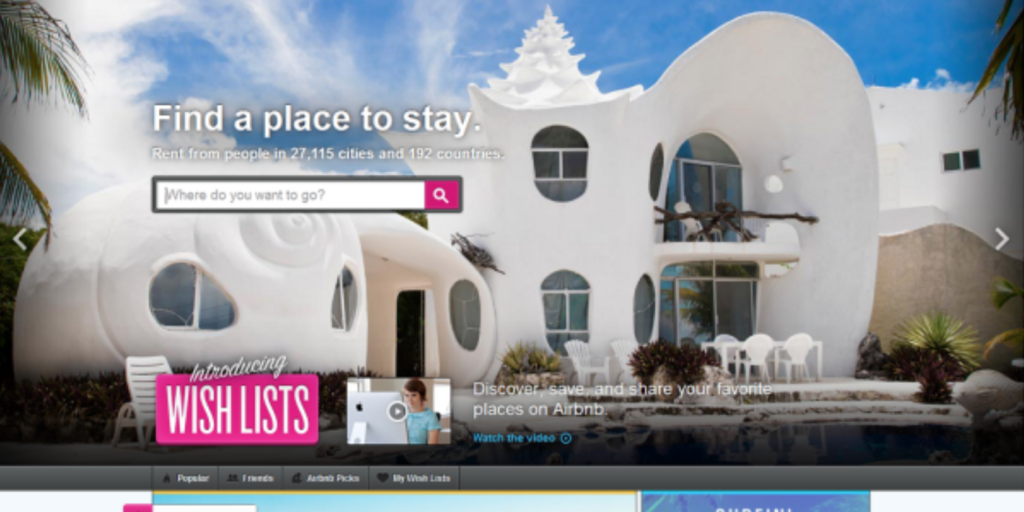
5 Ways for Hotels to Counter Growing Pressure from Review Sites, the Sharing Economy and the Expanding Technology Stack
Hotels are under increasing pressure to evolve. Review sites, the sharing economy, and even the rise of dedicated hotel technology are making adaptability a hotel’s most valuable asset. Here’s five ways hotels can respond.
{{cta(‘f8cb3079-e89f-4252-ba63-d0bf9fa05d56′,’justifycenter’)}}
With TripAdvisor’s growing impact on bookings, hotels are under a microscope like never before.
Guests are evaluating and sharing service observations publicly, divulging insights that previously lived anonymously in the hotel’s review systems and on paper rating cards. Because some 80% of guests consult 6-12 TripAdvisor reviews before booking, these ratings now have a direct bearing on ADR.
Previously, a hotel’s marketing department might focus on distribution and content that supported a brand’s image, without concerning themselves with the day-to-day operations of each individual property. As reviews were an internal toolset, the marketing department controlled the messaging and online opinion of the brand. In today’s environment, however, guest-generated content on blogs and review sites is driving bookings without the supervision of the marketing department.
If you think about the last time you gave or read a review on TripAdvisor, you’ll recall one of the main evaluation parameter is service, which means the content of the review is heavily focused on the in-stay experience. This means that looking at the booking experience as the end of the customer journey is not enough. Hotels are under more pressure than ever before to align the brand’s image with its actual experience and service delivery at the property level. Yet the foundation to achieving operational excellence is too often an afterthought.
Additionally, competitive pressures on hotels are rising. The sharing economy has birthed giants like Airbnb, which continues to take an ever growing chunk of the global lodging business. Each year the piece of the market taken by Airbnb becomes more meaningful, forcing many of the economics in running a hotel to be questioned.
And, while Airbnb has been able to run a “hotel business” without the inherent costs of running an actual hotel, hotels are getting even more expensive to run. CBRE data points out that U.S.hotel operating expenses rose 4.7% in 2015, a year in which inflation was just 0.1%.
But pressures are also mounting for hotels in subtler ways. The rise of dedicated hotel technologies aimed at alleviating some of these more obvious pressures can in fact create logistical challenges and uncertainties for hotel decision makers, due to limited IT budgets, questions about measurement of ROI, and worries about how systems actually impact the guest experience. So too, changes in consumer behavior and ever-rising guest expectations in technology are making the task of identifying the best hotel technology stack challenging.
The answer then is to find ways to leverage technology to improve the guest experience without needing to bet the farm. Here are five ways to do just that:
1. Connect your technology stack to improve service – Disparate systems, each of which are independently meant to improve operational efficiency and enhance guest service, end up creating unexpected operational burdens and can actually lead to awkward guest experiences. Guest to Staff and Staff to Staff communication should be seamless and real-time, regardless of the department.
2. Analog technology may get the job done, but you miss out on data – Surprisingly, two-way radios, clipboards and pen and paper are still very popular tools for hotel worker communications. There are some downsides though. Radios make it hard to log and keep track of tasks. Pen and paper records can get lost and can be easily ignored. Worst of all, none of these tools leaves a trail of data that hoteliers can later use to find guests’ pain points and address them before they show up in online reviews.
3. Satisfy the new consumer expectations through a mobile infrastructure, not a mobile app – Guests, particularly younger ones, are now expecting a mobile interface for everyone they do business with. Though it’s not a deal-breaker yet, the hotels that provide such interfaces have an edge over those that don’t. Guests should be able to communicate their needs and concerns during their stays via a service on demand infrastructure that staff operations are working on. As noted, this gives guests transparency into the work being done for them, allowing them to make more informed decisions.
4. Use data to identify and address problems – Prior to widespread data collection, issues at a hotel might have gone undiagnosed for long periods of time. Since there were no records kept and communication among a 24/7 staff can be lacking, this was forgivable. Now, though, there’s no excuse. Search functions can allow a layman to easily pinpoint a problem. Setting up messaging and alarms can help the staff stay on top of their work day to day while analyzing your hotel data can lead to improving operations over the longer term.
5. Don’t be beholden to older constructs, think outside the box with your workforce – Software automation gives hotels the opportunity to redefine themselves. This means experimenting with a front desk-less lobby but also empowering workers to take on multiple tasks. With mobile technology in hand, workers shouldn’t have to pass the buck anymore, but should rather be able to handle any situation themselves.
{{cta(‘cc6e4779-97a2-4821-a98d-a235eac7dbdd’,’justifycenter’)}}







